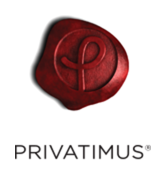Secure use of social media for U/HNWI´s.
For almost all teenagers, and, let’s be honest, most adults too, social media has become as essential a part of our day as taking breakfast. In fact, many of us check Facebook before we even roll out of bed. Facebook, Twitter, Snapchat, Instagram, social networks and media are popular-and they’re here to stay. We use them to stay in touch with old friends, to share photos, to make new friends, or to discover new things.
As soon as social media gained traction, of course, crime came with it. Once it was possible to pay for things like Facebook games with credit cards, people began scamming others for their passwords and accounts. When this became a serious enough threat, the networks themselves tried to educate people on the secure use of social media. Guides and rules were created to more or less enforce security measures beneficial-if not always appreciated-to the users.
The providers of social networks force their users to use longer, more complicated and more elaborate passwords, add phone numbers to secure their accounts (albeit there are other reasons for that too) and they allow to connect accounts with each other to make them more easily retrievable. On one hand this raises social media awareness, on the other hand it also increases the risk as people tend to use the same password for multiple things-therefore if someone finds out one password, they know them all.
Naturally, websites will warn users against choosing the same password in multiple places, however few people truly listen. Coincidentally, this is one of the first steps that should be taken to make social media more secure. And, despite it relating entirely to virtual things, social media awareness is incredibly important.
We post information about ourselves, our family, and our work, much of it publically. That is another thing that can increase the secure use of social media and that is reducing the amount of personal information that we spread around on the internet. Something as innocent as family pictures or a complaint about a supervisor has caused irreparable damage to people’s lives.
Without the existence of social media this likely wouldn’t have happened-not to say that they are a bad thing. A lot more people find employment through social networks than lose them, as there are entire networks dedicated to just that. And they are perfectly safe and beneficial to use-as long as it’s done responsibly.


